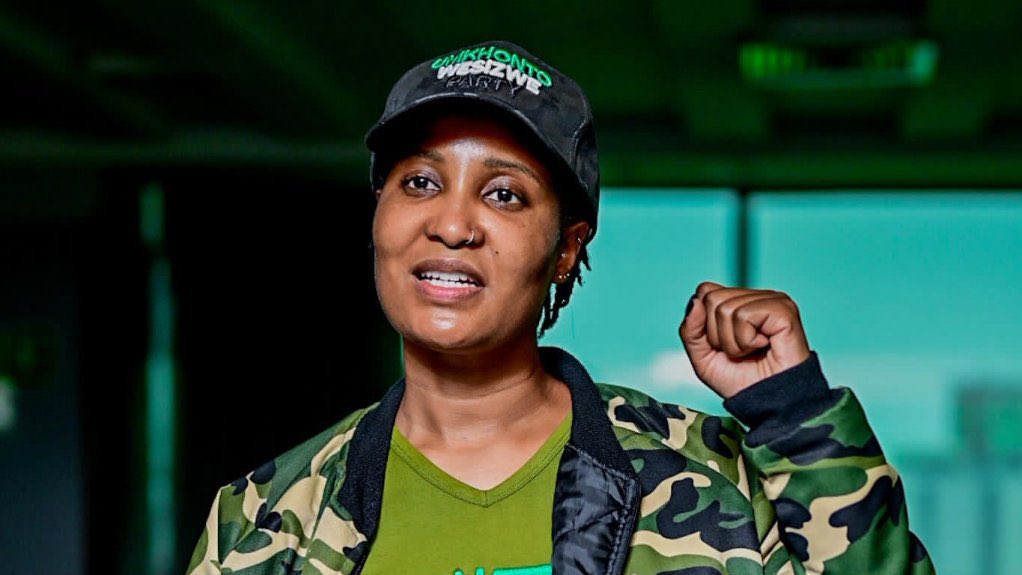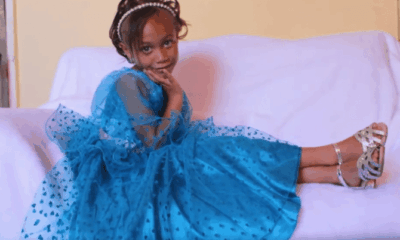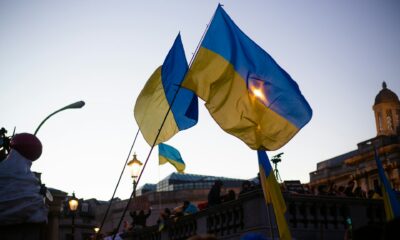News
“Bring Our Sons Home”: Desperate Families Plead for Action as South Africans Trapped in Ukraine Speak Out

“Bring Our Sons Home”: Desperate Families Plead for Action as South Africans Trapped in Ukraine Speak Out
The phone rings in the early hours of the morning, but for one KwaZulu-Natal mother, it brings no comfort. For two weeks she has barely slept, pacing through the silence of her home, wondering if her son, one of 17 South African men stranded in the Ukraine conflict, is still alive.
Her story, shared under anonymity for her son’s safety, paints a haunting picture of a crisis unfolding far from home, yet deeply rooted in South Africa’s own political tensions and economic desperation.
A Conflict Abroad, A Crisis at Home
The men at the centre of the storm were lured with promises that feel painfully familiar in a country battling unemployment:
“One-year training in Russia to become bodyguards.”
But those promises dissolved almost immediately.
Most families say they had no idea their sons were heading into a war zone. Many recruits were told to keep the process quiet a red flag they only understand now, far too late.
One mother recalls rejecting the idea outright. “I said no,” she explained. “But he insisted the opportunity was legitimate. I later learned they told them not to talk about the recruitment. Now he sends me only a greeting on WhatsApp. Nothing more.”
Her voice breaks under the weight of fear.
A Family Feud Spills into a National Scandal
The story has grown even more complicated and politically charged with allegations of human trafficking involving well-known members of the Zuma family.
-
Nkosazana Bonganini Zuma Mncube has opened a criminal case
against her sister Duduzile Zuma-Sambudla,
along with Siphokazi Xuma and Blessing Khoza,
accusing them of trafficking the men under false pretences.
Duduzile Zuma-Sambudla denies everything, saying she is a victim herself.
The public reaction has been explosive. Social media is filled with disbelief, anger, and political debate. Some South Africans accuse “politically connected recruiters” of exploiting vulnerable young men. Others accuse the media of sensationalising the crisis. Many are simply asking the same question:
How did 17 South African citizens end up fighting in a war they never agreed to join?
Voices From the War Zone
Two of the stranded men have broken their silence, sharing chilling first-hand accounts to help explain exactly how they ended up in Ukraine.
Sizwe Mthembu’s Story: “We were taken, not trained.”
In a video posted online, Sizwe Mthembu details the distressing journey:
-
They sent passports to Siphokazi Xuma, believing she was booking flights.
-
On arrival in Russia, they were stuck at the airport, not allowed in.
-
Soldiers eventually fetched them, one holding a banner marked “MK.”
-
They travelled for days without food or water.
-
They were forced to sign contracts in Russian, with no translation.
Mthembu claims that Duduzile Zuma-Sambudla and Blessing Khoza encouraged them to sign, insisting the documents were safe and that they had trained there themselves.
Trusting them and without any clear understanding of what was happening, the men signed.
Later came the real shock.
“We realised something was very wrong,” Mthembu said. “People were being taken away and never came back. That’s when we knew we were not here for training.”
Today, the recruits are separated, scattered across Ukraine, some unaccounted for.
Another Voice: “We signed the wrong contracts.”
Prince Mzobe from Durban says the group believed they were being trained as special forces, but soon learned otherwise.
“The contracts were in Russian. They told us the internet wasn’t working so the documents couldn’t be translated,” he explained.
“We are in serious trouble. We need help to come back home.”
His words echo the fear of many families who feel powerless, frustrated, and blindsided.
A Mother’s Plea: “Let them explain when they are safe.”
The mother who spoke out says she is not trying to shield her son from accountability only from danger.
“Let them come home first. Let them explain later. Right now, they are not safe.”
Her plea reflects a growing call across the country for government intervention. Civil groups, religious leaders, and ordinary South Africans are urging the Department of International Relations and Cooperation (DIRCO) to step in before more lives are lost.
How Did We Get Here?
A Bigger Story Beneath the Headlines**
Behind this crisis lies a painful truth: many young South Africans are so economically desperate that an offer of overseas “training” even one that sounds vague, feels like hope.
Human trafficking through false job offers is a growing trend, especially among unemployed youth. Recruiters exploit ambition, poverty and trust. This case highlights two uncomfortable realities:
-
South Africans are being targeted because they are vulnerable.
-
The system meant to protect them is not acting fast enough.
What Happens Next?
The government is now under mounting pressure to negotiate the men’s return. But with global politics, a live war, and disputed recruitment channels complicating the matter, the path home may be long and difficult.
Still, the families remain hopeful, because hope is all they have left.
A Cry No Government Can Ignore
South Africa has rescued citizens from overseas crises before. But this time, the stakes are higher, the politics are messy, and the trauma is already unfolding in real time.
As one mother put it:
“I just want my son home. Then let the truth come out.”
Her words may soon become the rallying cry for a country watching anxiously from thousands of kilometres away.
{Source: IOL}
Follow Joburg ETC on Facebook, Twitter , TikTok and Instagram
For more News in Johannesburg, visit joburgetc.com


























